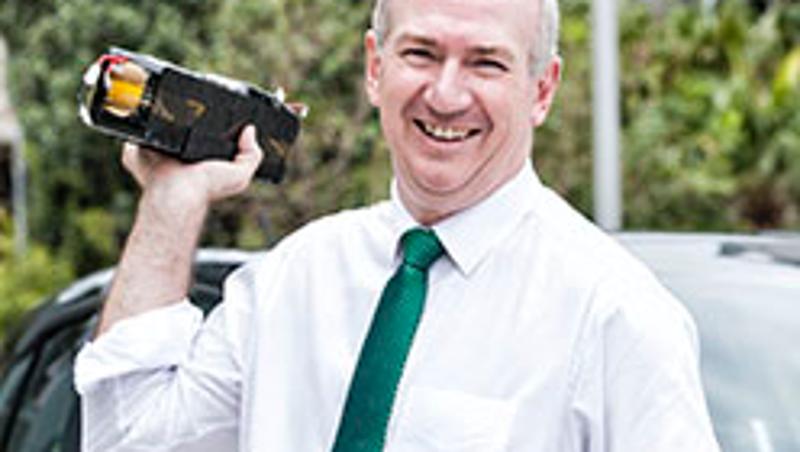
QUT researchers in Brisbane have joined with Australia's AutoCRC and the Malaysia Automotive Institute (MAI) to develop longer lasting lithium-ion batteries for electric vehicles and help wean the world off fossil fuels.
The goal of the three-year project, which has been funded with A$4 million from the AutoCRC, is to develop improved methods of manufacturing the advanced materials used in the batteries, that can quickly and easily be adopted by the burgeoning electric vehicle industry in Malaysia.
The project will be led by Professor Peter Talbot from the Institute for Future Environments at QUT.
"The global shift to electric cars will help wean the world off fossil fuels and reduce greenhouse gas emissions and air pollution," said Professor Talbot.
"But the technology and production processes for electric vehicles must keep improving so that their driving range keeps increasing and their prices keep falling.
"The most important - and most expensive - piece of the puzzle is the battery. The greater the energy-density of the battery in an electric vehicle, the further it can travel before it needs recharging."
Most electric vehicles currently on the market use lithium-ion rechargeable batteries. Professor Talbot and his team will identify the most promising lithium-based powders to use in these batteries and then optimise the process of producing them at a commercial scale.
"Every aspect of the project is designed to ensure the results can be applied quickly in the real world," said Professor Talbot.
"By June 2017 we will have well-tested material specifications and process parameters that automotive companies can start using.
"As new high-performance materials are created in the lab, new production processes must be developed alongside them if the materials are to really benefit industry and the world.
"Over the course of this project we will test and refine new production processes at lab scale, concept scale, pilot scale and ultimately commercial scale.
"We will use off-the-shelf equipment that is energy-efficient, environmentally friendly and capable of producing lithium-ion powders at commercial quantities. And we will use techniques and methods that any manufacturing company can use. We intend to make the transfer of technology to the automotive industry as efficient as possible."
The QUT Institute for Future Environments (IFE) is uniquely placed to carry out a project of this kind.
The IFE has a range of research facilities that facilitate the testing of materials and processes from lab scale up to pilot scale. These include the Central Analytical Research Facility (a group of specialised laboratories with state-of-the-art instruments for analysing the properties of materials) and the Banyo Pilot Plant Precinct (a general-purpose facility for pilot-scale electrical, mechanical, and structural and process engineering research).
Professor Talbot has extensive experience in industry-based research and development and has an international reputation in materials science, particularly in the fields of nano-materials manufacturing and high temperature superconductors. He holds numerous patents in the areas of solid-state chemistry, automated chemical manufacture and nano-materials. Professor Talbot will team with Professor Jose Alarco, a chief investigator for the project and also from IFE.
AutoCRC is a Cooperative Research Centre (CRC) that develops new low emissions technologies and capabilities for the automotive industry. This project forms a crucial part of AutoCRC's Vehicle Electrification research program, as it will ensure that newly developed materials can quickly be integrated into commercial scale production systems for electric vehicle components.
The Malaysian Automotive Institute (MAI) was established by the Malaysian Government to help drive the growth of the automotive industry in Malaysia by developing the strategies, policies and technologies the industry needs to be globally competitive.
Media contacts:
- Mechelle McMahon / Rose Trapnell, QUT media, media@qut.edu.au, 07 3138 2361 or 0407 585 901


